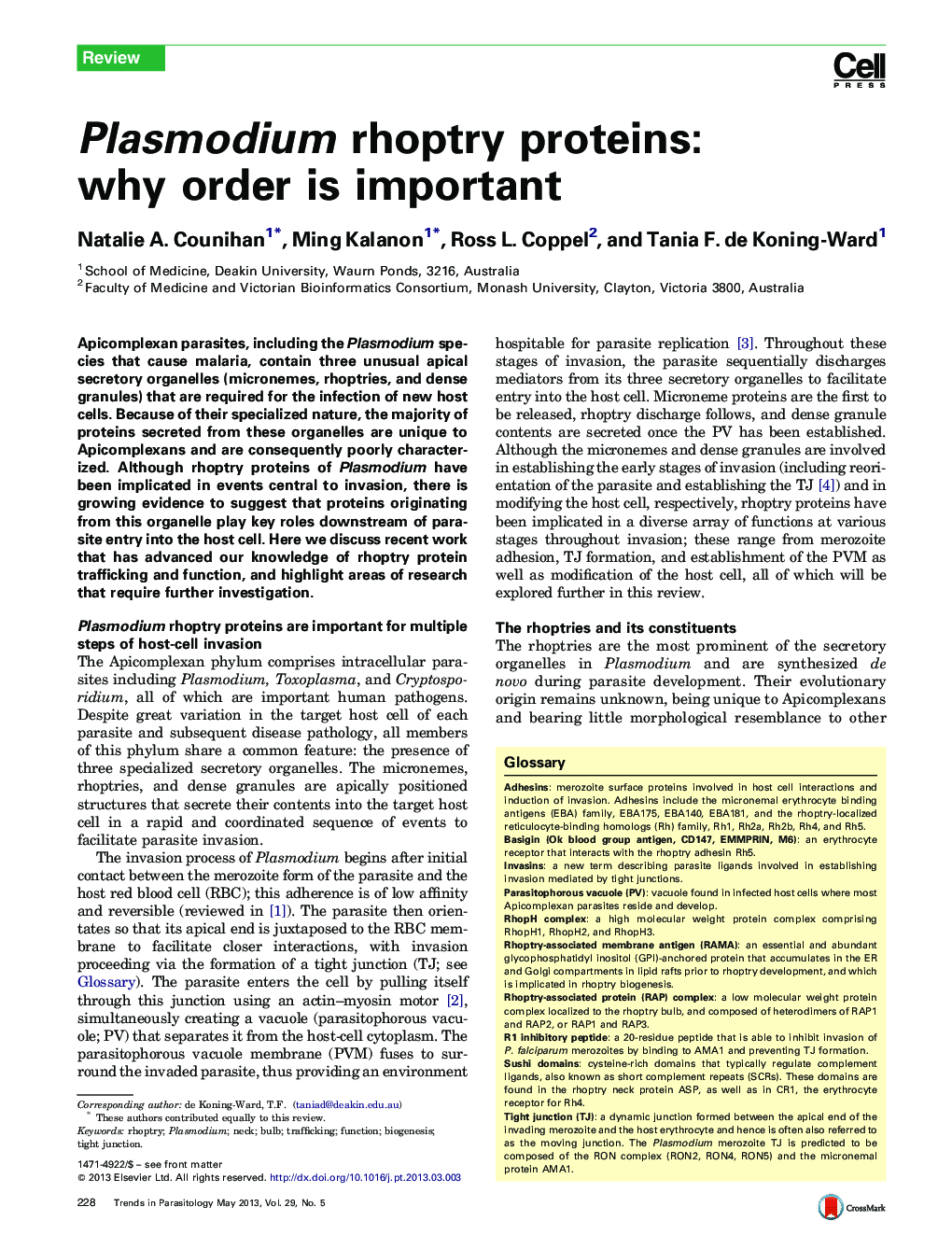| Article ID | Journal | Published Year | Pages | File Type |
|---|---|---|---|---|
| 3423208 | Trends in Parasitology | 2013 | 9 Pages |
•To invade host cells, malaria parasites secrete proteins from its apical organelles.•Rhoptry proteins function at multiple steps of the invasion pathway.•We discuss how proteins are sorted to the rhoptries in Plasmodium.
Apicomplexan parasites, including the Plasmodium species that cause malaria, contain three unusual apical secretory organelles (micronemes, rhoptries, and dense granules) that are required for the infection of new host cells. Because of their specialized nature, the majority of proteins secreted from these organelles are unique to Apicomplexans and are consequently poorly characterized. Although rhoptry proteins of Plasmodium have been implicated in events central to invasion, there is growing evidence to suggest that proteins originating from this organelle play key roles downstream of parasite entry into the host cell. Here we discuss recent work that has advanced our knowledge of rhoptry protein trafficking and function, and highlight areas of research that require further investigation.
